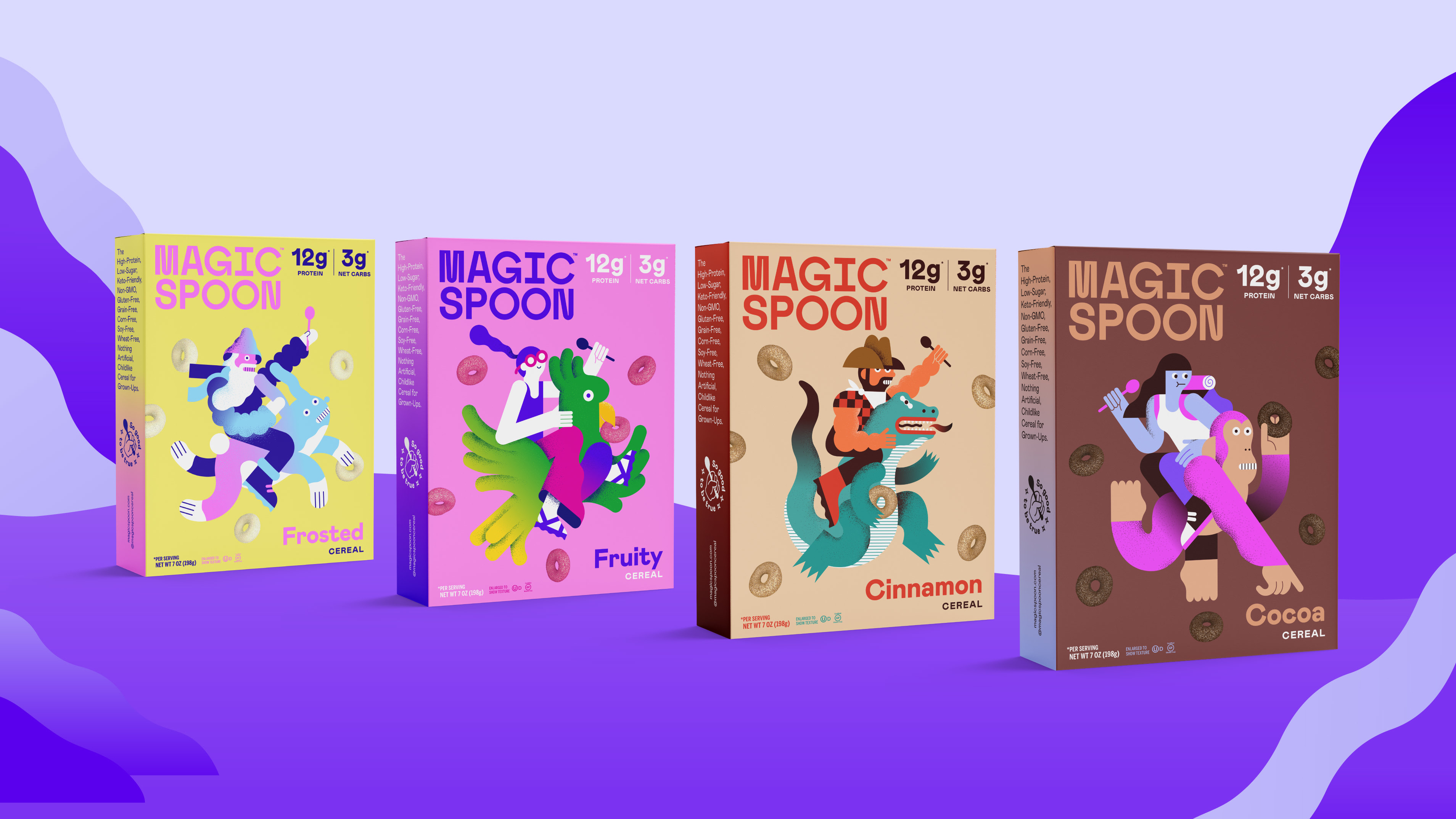Is A $10 Box Of Kids Cereal For Adults Actually Worth It?
Cereal isn't all that cheap, really. A family can blow through a $4 box in just a couple days, if everyone's eating it for breakfast (and midnight snacks). So what could justify the $10-per-box price tag for Magic Spoon, a new line of high-protein, low-carb "healthy cereal that tastes too good to be true"? The Brooklyn-based company promises Magic Spoon is cereal with the nutrition adults want, but the flavors you love about the Pebbles, Puffs, and Loops of the world. Does it live up? And who would really buy this?
I sat down at my kitchen counter with boxes of the four flavors: Frosted, Fruity, Cinnamon, Cocoa. They certainly looked like kid cereal for grown ups, down to the cartoon maze on the back of the box. We are a cereal household, despite not having kids. There's usually a box of Honey Nut Cheerios in the pantry, to which I'll add sliced strawberries when I feel virtuous. I have strong opinions about cereal, but I came to Magic Spoon with few expectations. I just wanted to know how it tasted, and whether there's any merit to the concept of healthy cereal that tastes like junk cereal.

The Frosted and Fruity flavors were most successful, especially the Frosted version, which tastes like it has only minimal nutritional value. It's resiliently crunchy, even when steeped in milk, and it's powdered with something I can only describe as tasting like the coating on a Jet-Puffed marshmallow. But the nutrition stats on these cereals are frankly crazy: A 3/4 cup serving of each contains 12 grams of protein—as much as Chobani Greek yogurts—and just 3 grams of net carbs. (It's like cereal for bodybuilders!) An equivalent serving of Honey Nut Cheerios contains 20 grams of carbs, for comparison, and even Special K Protein contains 16 grams of carbs. Magic Spoon is made of milk and whey proteins and tapioca flour, and is sweetened not by sugar but monk fruit, stevia, and allulose, a "sugar found in things like figs and maple syrup."

That sugar and its carb reduction comes at a cost, though. These cereals aren't as sugary-satisfying as their toucan-mascot counterparts, and the Cinnamon and Cocoa versions in particular taste like they're healthy. Across the board, the texture of all the cereals was great, maintaining their crunch without tasting too fibrous. But there's no mistaking these for anything Kellogg's would sell: The flavors mysteriously don't leach into the milk, and they lack the immediate brain-pleasure-center jackpot that I assume is the result of massive amounts of refined sugar hitting your aortas like a flash flood. I had only a couple moments of nostalgia while eating these: the Fruity flavor smells just like Froot Loops, for example. But on the whole, I wasn't transported back to my pajama-clad Saturday-morning-cartoon days.
Bottom line: If you were adhering to the keto diet or on a strict low-sugar regiment, I can see Magic Spoon hitting the spot. I assume people doing the keto thing have fewer food options that deliver the crunch of cookies, cereal, and crackers, so these cereals probably fill a necessary void. But the rest of us—even if we like the idea of a healthier cereal—would probably be more satisfied, and less broke, by sticking with granola.
